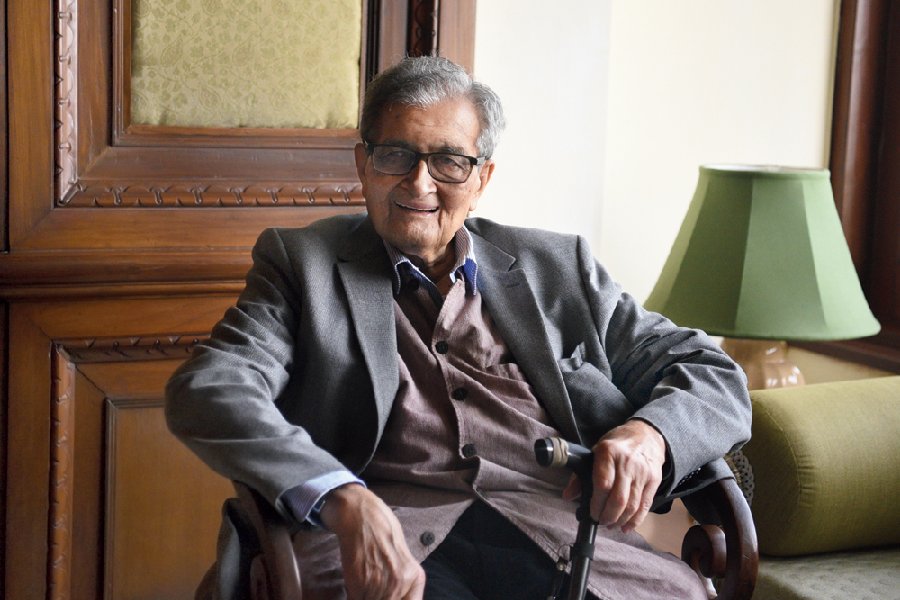Stating that democracy “often demands the sharing of power”, Nobel laureate Amartya Sen welcomed the ongoing discussions between non-BJP parties to form a federal front for next year's general elections.
Speaking to PTI in a free-wheeling interview at his ancestral residence here during his recent visit to India, the 89-year-old economist also said the central government needed to intervene with greater force to bring peace in Manipur.
“I think the fact of the matter is often democracy demands the sharing of power. (But) often, the majority vote did not allow the minority parties to have that force and rather left the minority (in) too precarious (a situation),” Sen said.
The economist-philosopher said, “Given the current situation, the only way of having some kind of balancing of power” would be for the opposition parties “to stand with each other, rather than remain vulnerable.” He added, “In some ways that seemed to be what happened in the meeting in Patna (opposition conclave held last month).” Opposition leaders from 24 parties are slated to again hold a meeting at Bengaluru on Monday and Tuesday. Besides the Congress, JD(U) and RJD, most major opposition parties including Trinamool Congress, Samajwadi Party, Dravida Munnetra Kazhagam (DMK), AAP, CPI(M), CPI, CPI (ML), Shiv Sena and NCP will be joining the meeting which is expected to chalk out a strategy for fighting the 2024 general elections unitedly.
Speaking on the situation in Manipur where ethnic strife has claimed more than 150 lives since May 3, the Nobel Laureate said, “What is needed is (a) just, powerful intervention by the central government.” He also said he had expected the Prime Minister would make a statement “of a just and balanced nature about Manipur”.
He also spoke about the defamation case against Congress leader Rahul Gandhi and said he did not recall any Member of Parliament facing arrest in any similar case or losing their seat in the Lower House because of a similar case.
“It may well be very unfortunate for India that we are going in that direction,” Sen added.
The economist said he would be surprised if the Uniform Civil Code (UCC), “would have a constructive role.” He pointed out that the “Indian Constitution is a well-thought-out structure” which was passed by the Constituent Assembly after much deliberation and thought and added that the process had given “different sides in the Indian polity” to express their views before a consensus was arrived.
Sen added that he was “very worried about what the Code wants to try to do in India and the kind of possible negative consequences it may have in our attempted democratic experiment.”
PTI
Except for the headline, this story has not been edited by The Telegraph Online staff and has been published from a syndicated feed.











